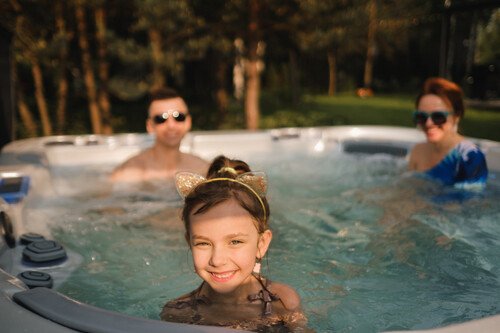In our fast-paced world, we often treat self-care like another item to cross off our to-do list. A ten-minute face mask, a quick meditation app before bed, or a rushed bath on Sunday evening might feel like something, but they rarely provide the deep nourishment our minds and bodies truly crave. What if we stopped treating self-care as an occasional fix and started approaching it as a meaningful ritual?
A ritual is different from a routine. Routines are practical. Rituals are intentional. They ground us, elevate the everyday, and provide moments of peace and presence. Here are six tips to help you transform your self-care habits into soulful, restorative rituals.
1. Start With Intention
Before engaging in any self-care activity, please take a moment to pause and ask yourself why you’re doing it. Are you hoping to unwind after a long day? Cultivate self-love? Nourish your body? Setting an intention helps anchor the experience and connect you to a more profound sense of purpose. Even something as simple as drinking a cup of tea can become powerful when done mindfully. Try lighting a candle, writing down your intention, or speaking it aloud. These small symbolic gestures mark a transition from your daily grind into sacred self-care time.
2. Create a Dedicated Space
Rituals thrive in dedicated environments. Think of how a spa instantly makes you feel calm and cared for—now imagine recreating that at home. You don’t need a fancy setup, just a few small touches that signal “this is my sanctuary.”
Designate a corner of your home as your self-care zone. It could be your bathroom with dimmed lights and essential oils, or a cozy reading nook with soft pillows and blankets. If you have access to a hot tub, it can become your ultimate relaxation spot—an oasis where your mind can disconnect and your body can heal. What matters most is that the space feels safe, soothing, and yours.
3. Engage All Your Senses
One of the easiest ways to turn a routine into a ritual is to involve your senses. The more sensory input you include, the more immersed you’ll become in the moment.
- Sight: Soft lighting, flickering candles, nature views
- Sound: Calming music, white noise, guided meditations
- Smell: Incense, essential oils, fresh flowers
- Touch: Cozy blankets, luxurious skincare products, warm baths
- Taste: Herbal teas, infused water, nourishing snacks
If you’re soaking in your hot tub, enhance the experience with calming aromatherapy or a soothing playlist. This kind of multi-sensory experience turns even a 20-minute session into something deeply restorative.
4. Make Time Sacred, Not Spare
We often squeeze self-care into our leftover time, after emails, errands, and everyone else’s needs. But when you view self-care as sacred, you begin to prioritize it like you would any necessary appointment.
Block out time in your schedule and protect it fiercely. Treat it like a date with yourself that you never cancel. Morning rituals include journaling and stretching, while evening ones involve candlelit baths or reflecting on gratitude. The more regularly and respectfully you show up for yourself, the more your mind and body will come to rely on these rituals as essential, not optional.
5. Simplify and Slow Down
Ritual doesn’t mean elaborate. It means intentional. A 5-minute face massage done with focus and presence is far more nourishing than a 30-minute beauty routine performed while scrolling through your phone.
Take your time. Notice the texture of your moisturizer, the sound of your breath, and the temperature of the water. This is about quality, not quantity. Slowing down is a radical act in a world that constantly demands speed. It signals to your nervous system that it’s safe to relax and reset.
6. Honor Transitions
One of the most potent aspects of ritual is its ability to mark beginnings and endings. Whether you’re moving from work to rest, from tension to calm, or from one season of life to another, rituals can help you navigate change with grace.
End your day with a small ritual to signal that it’s time to unwind—turning off devices, lighting a candle, soaking in a bath, or writing down three things you’re grateful for. In the morning, consider a mindful stretch or deep breathing before diving into the day.
These transitional moments become anchors in your schedule, supporting emotional resilience.
Final Thoughts
Turning your self-care routine into a ritual doesn’t require expensive tools or hours of free time. It’s about intention, presence, and consistency. Whether you’re sipping tea, journaling under a blanket, or soaking in your hot tub under the stars, these moments of stillness and care can become deeply healing when treated as sacred.
Self-care isn’t selfish. It’s a way of reminding yourself that your needs, your well-being, and your peace of mind matter. When we turn routines into rituals, we reclaim the power of presence—and that changes everything.
